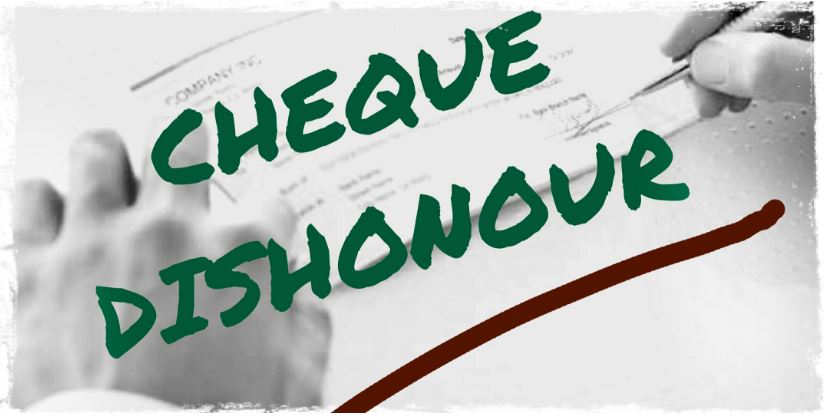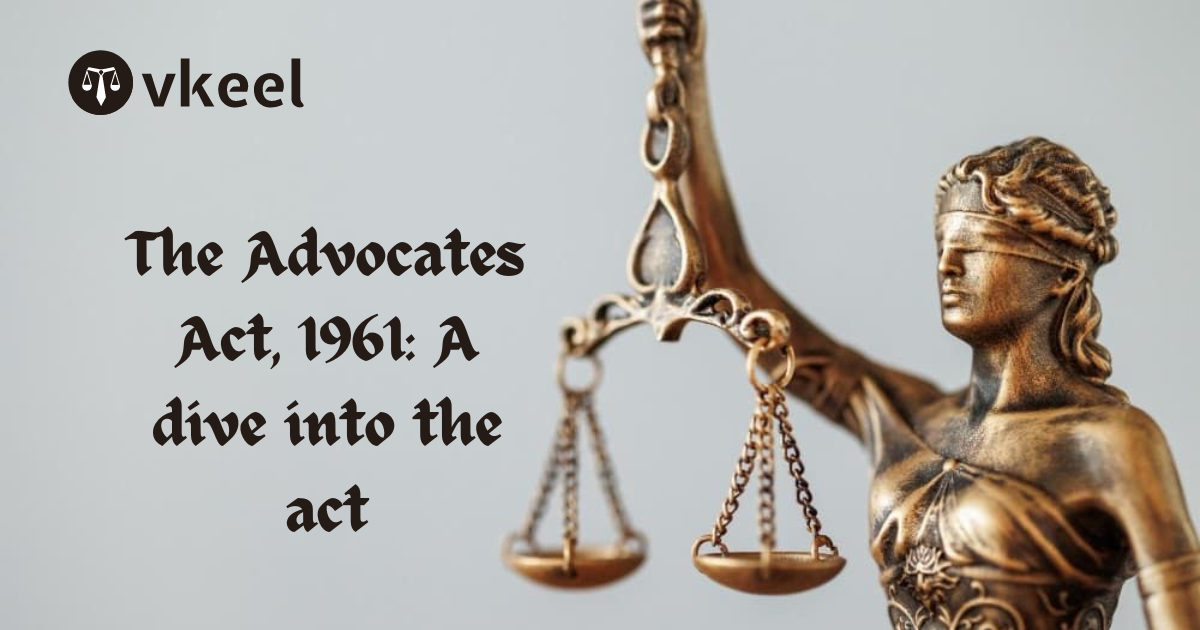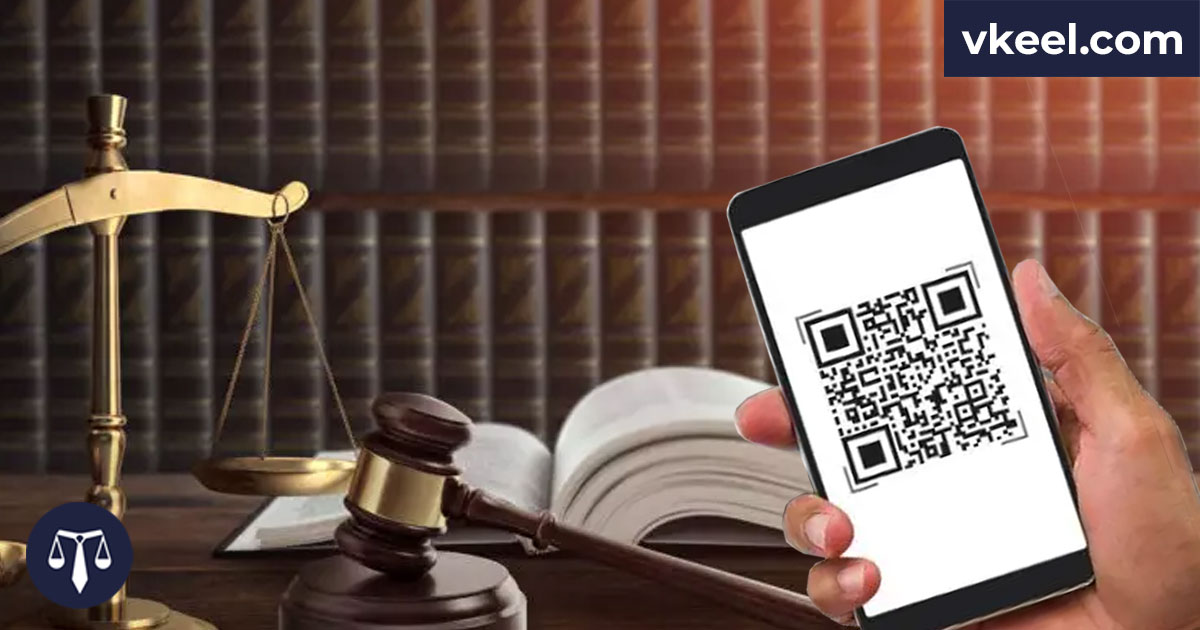Highlight of important Dishonour of cheque case laws in 2020
By Kishan Dutt Kalaskar
Dishonour of a cheque is governed by the provisions of Section 138, Negotiable Instruments Act, 1881. Under this Section, when a cheque is issued by a person for the discharge of any debt or liability and the same is returned unpaid by the bank for insufficiency of funds, or otherwise, by an agreement with the bank, such person shall be punished with imprisonment for extending two years and fine. This article lists down the significant judgements concerning the dishonour of cheques delivered by the Courts of law in India in the year 2020.
In the case of Kiran Rameshlala Bhandari v. Narayan PurushottamSarada, the Bombay High Court held that once an accused admits his signatures on the blank cheques issued in his favour, the Complainant would get an authority under Section 20 of Negotiable Instruments Act to finish the inchoate cheque.
In AdeshPrakashchand Jain v. Harish PunamchandUne, it was held by the Bombay High Court that an appeal challenging the order of conviction under S.138 Negotiable Instruments Act cannot be dismissed merely on the ground of failure to pay fine without considering the merits of the case.
Consult with: Top Lawyers of India
The Delhi High Court quashed proceedings under S.138 of the Negotiable Instruments Act, 1881 against independent non-executive Directors who were not involved and accountable for the day-to-day activities of the Company in the case of SunitaPalta v. Kit Marketing (Pvt) Ltd.
APS Forex Services Pvt. Ltd. v. Shakti International Fashion Linkers and Ors. is a landmark judgement passed by the Supreme Court holding that the defence raised that ‘cheques were issued as security’ cannot be accepted in the absence of any evidence to rebut the presumption of legal debt under S.139, Negotiable Instruments Act, 1881.
In RajeshbhaiMuljibhai Patel and Ors. v. State of Gujarat and Anr., the Apex Court held that when in a particular case, disputed questions of facts are involved, a Court cannot quash a complaint filed for dishonour of cheque under S.138 of the Negotiable Instruments Act, 1881.
1.) Kiran Rameshlal Bhandari v. Narayan PurushottamSarada, 2020
CRIMINAL APPEAL NO.369 OF 2017
Date: 07-12-2020
Facts:
The Complainant had filed a case wherein he stated that he had friendly relations with the accused. Since the accused required cash to buy immovable property, he asked the Complainant to lend INR 15,00,000 and INR 6,00,00, which the Complainant lent. Thus, two cheques were given by the Accused to the Complainant to discharge this debt. On depositing the two cheques, both were dishonoured, and the reason for the same was given as ‘refer to drawer’. Considering these conditions, the Complainant filed two separate complaints and the Magistrate, after considering the facts, acquitted the accused. Therefore, given the abovementioned, an appeal was filed in the Bombay High Court.
Talk with: Best Lawyers of India
Issue: Whether the Complainant has discharged the initial burden to prove that he had advanced loan to the accused?
Held:
Concerning the amount of INR 15,00,000, the Bombay HC held that the Complainant had discharged the initial burden of proof to prove that he has advanced a loan to the accused for the said amount.
In his statement under Section 313 of the CrPC, the accused did not state that he was holding such an account, on which the Complainant gave the cheque and didn’t explicitly state that he had not gotten the amount through the said account.
The Bench stated that the Complainant had proved legally enforceable debt or liability, which was to the extent of INR 15,00,000 as against the accused. The other disputed cheque, i.e., of INR 6,00,000, Complainant expressed he had given the said amount in cash. Therefore, the Complainant has released the initial burden of proof that he had advanced INR 6,00,000loan to the accused.
In this case, the accused did not deny his signature on the disputed cheques. Notwithstanding, he came with a defence regarding how those cheques went with the Complainant’s ownership. This defence was described by the Bench as ‘unbelievable’.
The Bench expressed that if, in arguendo, it concedes to the defence raised that the disputed cheques were blank, nonetheless, once the accused concedes his signatures on the disputed cheques, at that point the legal position is certain that the Complainant would get an authority under Section 20 of Negotiable Instruments Act to finish the inchoate cheque.
It was held that as soon as the Complainant released his initial burden of proving a legal debt and the accused admits his signatures on the cheques; at that point, the presumption under Section 139 of the NI Act is invoked in favour of the Complainant. The Complainant was the ‘holder of cheques’ and was entitled to present the same for encashment. Both the cheques were dishonoured. The legal notice issued by the Complainant were complied with, and therefore, the Court held that the accused is guilty of committing the offence punishable under Section 138 of the Negotiable Instruments Act. The Bench added in its decision that the Appellant would likewise be keen on getting his amount back. Accordingly, payment of compensation under Section 357 of the Code of Criminal Procedure to the Complainant would be in legitimate concern for justice.
Consult with: Top Lawyers of India
The Court held that since all the statutory requirements of notice were complied with yet the accused failed to repay the amount advanced as a loan to him, he is guilty under S.138 of the Act and imposed a fine of Rs 18,00,000 and Rs 8,00,000.
2.) AdeshPrakashchand Jain v. Harish PunamchandUne, 2020
941 CRIMINAL REVISION APPLICATION NO.231 OF 2019 WITH APPLN/2686/2019 IN REVN/231/2019
Date: 08-01-2020
Facts: The Trial Court sentenced the convicted under Section 138 of the Negotiable Instruments Act. He was sentenced to undergo simple imprisonment for a period of one year and a fine of Rs. 6.58 lakhs. The Appellant preferred an appeal against the decision of the Trial Court. During the continuance of proceedings, the Additional Sessions Judge suspended the sentence until the final disposal of the appeal. A condition was imposed that 20% of the fine amount imposed by the Trial Court has to be deposited. Nonetheless, the Appellant failed to fulfill the condition within the prescribed time and stayed missing for quite a while. In such conditions, the Additional Sessions Judge dismissed the appeal in default for want of prosecution. Aggrieved thereby, the Appellant filed the instant revision application.
Held: The High Court considered the submissions made by S.S. Bora, Advocate representing the Appellant, and S.J. Salunke, Advocate for the respondent. The Court relied on Bani Singh v. the State of U.P., (1996) and Vijay D. Salvi v. the State of Maharashtra (2007) and reiterated that a criminal appeal could not be dismissed on mere non-instalment of fine; it should be disposed on merits. With such a perspective, the High Court held that the order of Additional Sessions Judge is not a valid legal order and, subsequently, quashed the said order. When the sentence suspension against him was conditional, he has to undoubtedly submit to those conditions. Condemning the conduct of the Appellant, the Court imposed costs of INR 25,000 on him.
In this way, the Court permitted a criminal revision application filed before itself against the order of the Additional Sessions Judge wherein the appeal filed by the Appellant against the decision of the Trial court sentencing him for the dishonour of cheque guilty under Section 138 of the Negotiable Instruments Act, 1881, was dismissed for non-instalment of fine.
3.) SunitaPalta v. Kit Marketing (P) Ltd, 2020
CRL.M.C. 1410/2018
Date: 03-03-2020
Facts: In this case, Petitioners were brought for the offence punishable under Section 138 NI Act. Respondent filed a complaint expressing that the accused were regular buyers of goods from the Complainant on a credit basis and made a regular payment towards sale consideration occasionally in the past. Four account payee cheques were given by the accused in lieu of the outstanding balance payable by the accused. In this case, the cheques were returned unpaid to the Complainant vide bank’s return with comments “Funds Insufficient”.
Talk with: Best Lawyers of India
The Complainant sent a legal notice of demand calling upon the denounced to make payment within 15 days from the date of receipt. Since no payment was made within the legal time of 15 days, a complaint under Section 138 read with Sections 141/142 of N.I. Act was filed.
Counsel for the petitioner argued that petitioners were the autonomous non-executive Additional Directors and were never associated with the Company’s everyday undertakings at any point in time. Further, he alluded to the complaint where the present petitioners were wrongly described as Directors.
An admitted case of the respondent was that the petitioners were neither the Managing Directors nor the signatories to the cheques being referred to.
Further, the respondent presented that the petitioners were named as Directors in the complaint, dependent on the data that was downloaded from the authority site of R.O.C.
Held: While concluding its decision, the Court stated that an individual’s Vicarious obligation arises in Section 141 of N.I. Act, and referred to S.M.S. Drugs Ltd. v. Neeta Bhalla, (2005).
Another Supreme Court’s decision that the Bench referred to was; ChintalapatiSrinivasa Raju v. Protections and Exchange Board of India (2018), wherein it was held that Non-Executive Directors are not associated with the everyday undertakings of the running of the Company and are not accountable for and not answerable for the conduct of the Company’s business.
Given the abovementioned, the Court observed that the petitioners were neither the Managing Directors nor the accused Company’s approved signatories.
Further, the Court noticed that a scrutiny of the respondent’s complaint shows that aside from general allegation expressing that petitioners were answerable for control and management and everyday issues of the accused Company, no particular role had been attributed to petitioners.
To secure the criminal liability under The Negotiable Instruments Act, 1881, the averment mentioned above with no particular details regarding how and in what way, the petitioners were answerable for the control and the management of affairs of the Company is not sufficient.
Henceforth the impugned order summoning the petitioners under Section 138 NI Act was quashed.
4) APS Forex Services Pvt. Ltd. v. Shakti International Fashion Linkers and ors
Supreme Court
14 February 2020
Facts:
The case arose from two criminal appeals between the same parties from the order of acquittals passed and confirmed by the High Court. Charges on the accused were under S.138 Negotiable Instruments Act, 1881. The Appellant was in the business of sale and purchase of foreign exchange. The Respondent-accused approached the Appellant for a USD Travel Currency Card and a sum of Rs. 19,01,320/- was advanced to the respondent using a Visa Travel Money (VTM) Card. The amount paid was subsequently withdrawn by the respondent. The Appellant alleged that the Respondents had paid only Rs.6,45,807/- and left a balance of Rs.12,55,513/- to be paid later. The respondent later on issued four cheques total amounting to Rs.9,55,574/- in favour of the Appellant towards the payment, which was dishonoured. Subsequently, the Respondents issued another cheque for the discharge of legal liability, which was also dishonoured due to ‘stop payment’. The Appellant then served a notice upon the Respondents u/s 138 of the Negotiable Instruments Act (NI Act), but the accused still did not make the payment. Thereafter, a complaint was filed before the Trial Court by the Appellant. The Magistrate noted that the accused had admitted his signature on the cheque but held that there is no legal liability as to the payments through card had not been proved and established, and thus, the accused was acquitted by the Magistrate. In an appeal, the High Court upheld the order of acquittal, and the Appellant then approached the Supreme Court.
Consult with: Top Lawyers of India
Held:
The Supreme Court noted that the issuance of cheque and signatures had not been contested by the accused. However, nothing was shown on record to depict that the cheque was given by way of security in reply to the statutory notice. Therefore, after the admission of issuance of the cheque, a presumption u/s 139 NI Act that there is a legal debt arises, and the same has to be rebutted by the accused by presenting evidence in this regard.
The Court relied on several judgements regarding the presumption u/s 139 NI Act and its application. The Court observed that under S.139, the Court has to presume unless the contrary is proven that the holder of a cheque has received it for the discharge of a debt or liability. This presumption is rebuttable, and the burden of proving that the cheque has not been issued for a liability is on the accused.
The Court further held that a second cheque was issued after the previous cheques had been dishonoured in the present case. This raises the presumption u/s 139 of the existence of a legal debt or liability. To rebut this presumption, the respondent must lead evidence that the full amount due and payable to the Complainant has been paid which was not done. The Apex Court held that the Courts below had grossly erred in acquitting the accused and passed orders of conviction against the Respondents.
Therefore, the Apex Court set aside the orders of acquittal in favour of the accused due to the absence of sufficient evidence rebutting the presumption of the existence of a legal debt when the initial burden of proving that a cheque has been issued in furtherance of a legal liability has been discharged by the Complainant.
5) RajeshbhaiMuljibhai Patel and Ors. v. State of Gujarat and Anr.
Criminal Appeals No. 251-252 of 2020
Supreme Court
10 February 2020
Facts:
A petition for quashing of proceedings under S.482 of the Code of Criminal Procedure (CrPC) before the High Court for a complaint registered under S.138 NI Act for the issuance of forged receipts. The High Court quashed the said proceedings. Aggrieved thereby, an appeal was filed before the Supreme Court contending that the High Court had erred in dismissing the proceedings as it did not take into consideration the admission of issuance of cheques from his NRE Account by the accused.
Talk with: Best Lawyers of India
Held:
Division Bench of the Supreme Court accepted the contentions of the Appellants and held that once the accused has admitted that cheques were issued, the presumption under Section 139 NI Act arises in favour of the holder of the cheque. Thus, the appeal was allowed.
It was held that once the issuance of the cheque is admitted/established, the presumption of the existence of a legal debt would arise under Section 139 of the N.I. Act in favour of the holder of the cheque. This presumption can be rebutted. It was contended that the cheques were issued to help the Appellant in purchasing certain lands; therefore, the burden lies upon the accused to rebut this presumption by adducing evidence.
“The High Court did not keep in view that until the accused discharges his burden, the presumption under Section 139 of N.I. Act will continue to remain. When disputed questions of facts are involved, which need to be adjudicated after the parties adduce evidence, the complaint under Section 138 of the N.I. Act ought not to have been quashed by the High Court by taking recourse to Section 482 CrPC.”
As regards the power of the High Court under S. 482 CrPC, the Court observed that the power ought not to have been exercised in this case, disregarding the presumption under S. 139 NI Act.
The Court, therefore, held that the High Court has grossly erred in quashing the proceedings without considering the statutory presumption under the Negotiable Instruments Act, 1881.
Conclusion
In the Kiran Rameshlalacase (supra), an aggrieved person was allowed his claims as the accused had admitted his signatures on the blank cheques issued. While in the AdeshPrakashchand case (supra), relief was granted to the Appellant as it was held that if a person fails to pay the fine, an appeal cannot be dismissed on that ground alone; it has to be reviewed on merits.
The SunitaPalta case (supra) is a significant judgement as it relieves the non-executive Directors who are not in control of the daily activities of the Company from liability under criminal law for the issuance of dishonoured cheques. APS Forex Services case(supra) reasserted the need for rebutting the presumption of the existence of a legal debt under S.139 of the Negotiable Instruments Act by leading evidence in this regard. Without the rebuttal of this presumption, the defencecannot successfully establish its case. Similarly, in the RajeshbhaiMuljibhai Patel case (supra), it was clearly laid down that if there is a dispute over facts in a case, the Court cannot quash a complaint filed for the dishonour of cheque under S.138 of the Negotiable Instruments Act, 1881.
Consult with: Top Lawyers of India
Through these landmark judgements, the Courts in India have progressively evolved the concept of liability in cases of dishonour of cheque and preserved the rights of the aggrieved creditors. Payments through cheques have been the foremost manner of settling both personal and trade accounts in India. Cheque- bouncing hinders the right of a person to recover the amount lent by him to another.
Disclaimer:
The information provided in the article is for general informational purposes only, and is not intended to constitute legal advice or to be relied upon as a substitute for legal advice. Furthermore, any information contained in the article is not guaranteed to be current, complete or accurate. If you require legal advice or representation, you should contact an attorney or law firm directly. We are not responsible for any damages resulting from any reliance on the content of this website.












